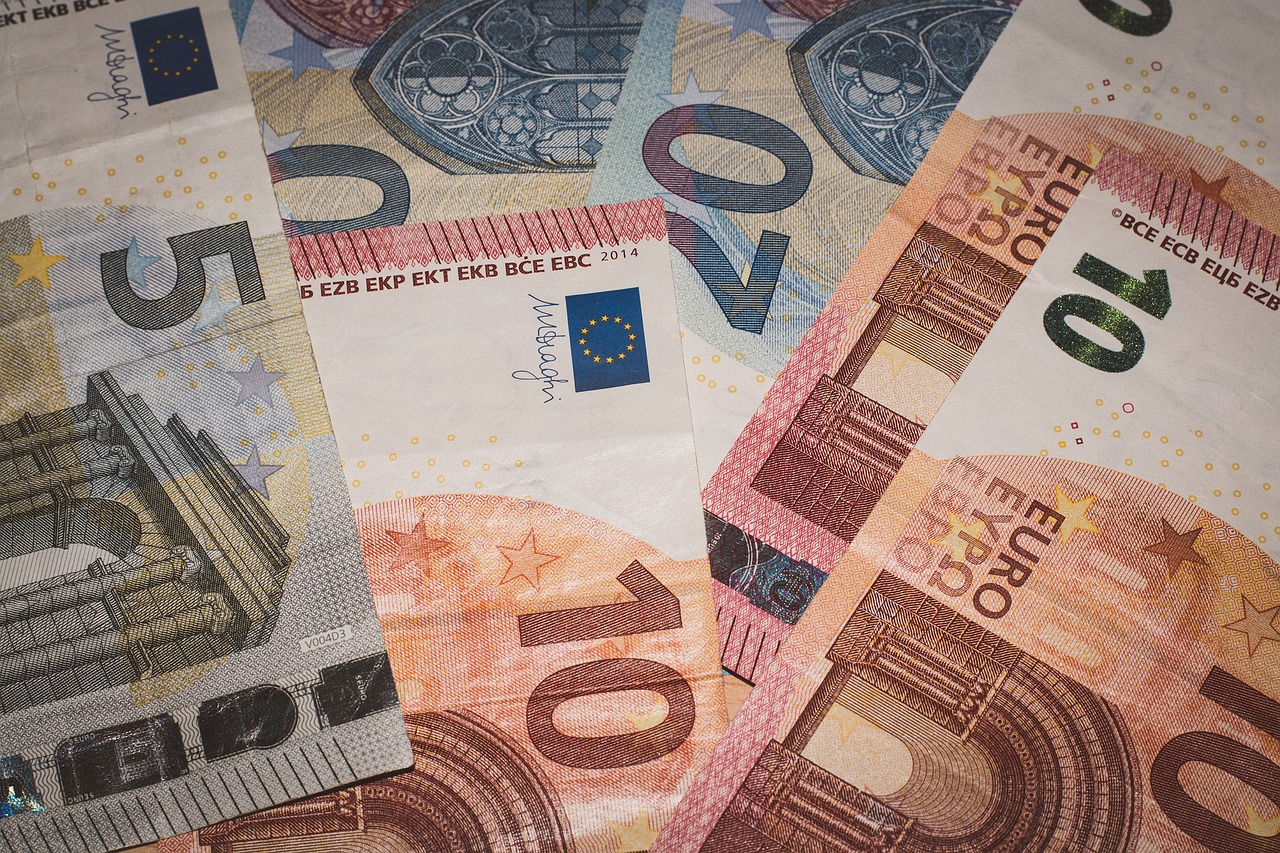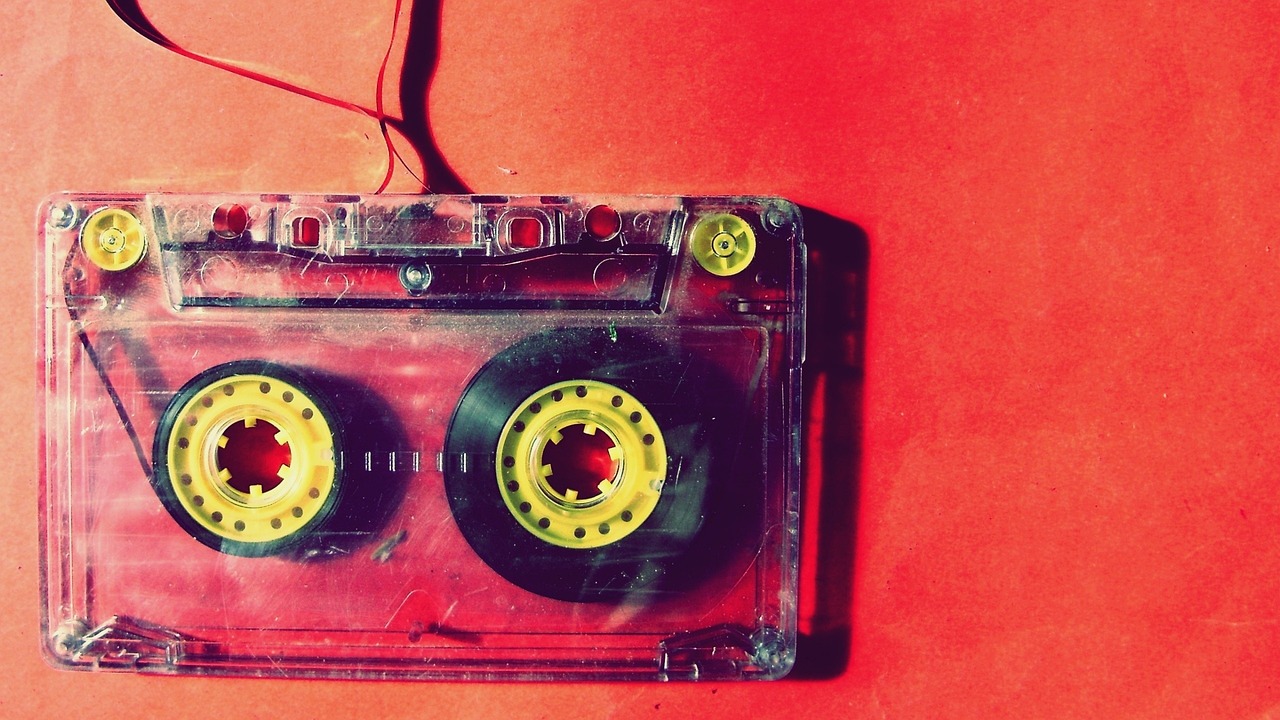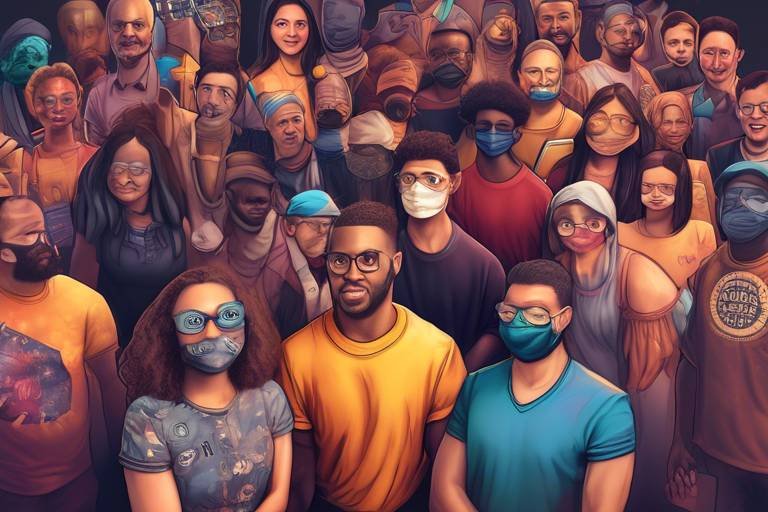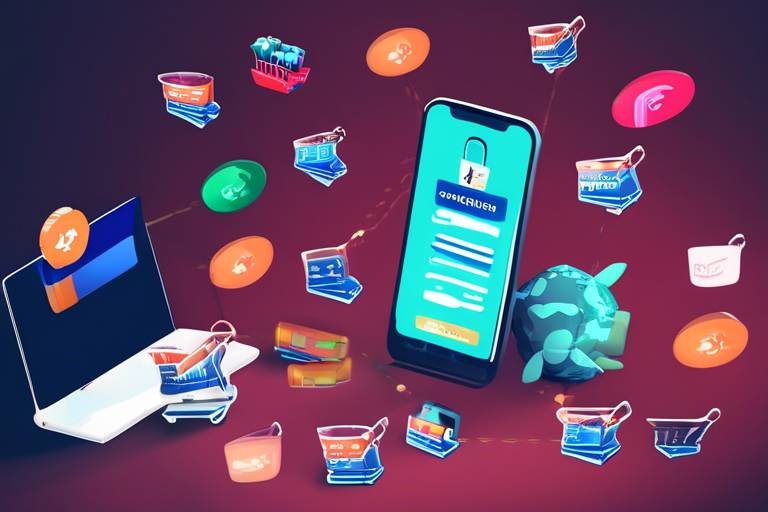The Future of Blockchain in the Music Industry
In recent years, blockchain technology has emerged as a revolutionary force across various industries, and the music industry is no exception. Imagine a world where artists no longer have to worry about unfair royalty payments or complicated licensing agreements. Instead, they can focus on what they do best: creating music. This article delves into how blockchain is set to transform the landscape of music, enhancing transparency, improving artist royalties, and revolutionizing music distribution and rights management.
One of the most exciting aspects of blockchain is its ability to enable a decentralized approach to music distribution. Traditionally, artists have relied heavily on record labels and streaming platforms to get their music out there. However, with blockchain, artists can share their work directly with fans. This not only reduces the need for intermediaries but also allows for a more direct connection between artists and their audience. Think of it as cutting out the middleman in a transaction; you get to keep more of your earnings and maintain control over your creative output.
Imagine if every time you played a song, the artist received their payment instantly. This is where smart contracts come into play. These self-executing contracts automate royalty payments, ensuring that artists receive fair compensation in real-time for their work. No more waiting months for payments or dealing with complicated accounting. With smart contracts, the payment process becomes seamless and transparent, addressing long-standing issues that have plagued the music industry.
With the advent of blockchain, licensing agreements can also be automated through smart contracts. This simplification reduces disputes over rights and benefits both artists and producers. By having a clear, immutable record of agreements, everyone involved can rest easy knowing that their rights are protected. It’s akin to having a digital notary that verifies and safeguards every transaction.
One of the significant advantages of blockchain is its transparency. This technology can help reduce legal disputes regarding music rights by providing a clear and immutable record of ownership and usage rights. Imagine a world where artists can easily prove their authorship without lengthy legal battles. This not only saves time and money but also fosters a healthier environment for creativity.
Blockchain can significantly streamline revenue sharing among multiple stakeholders. In a typical music project, various parties—like producers, songwriters, and performers—are involved. With blockchain, all parties can receive their fair share of earnings promptly. This ensures that everyone is compensated fairly and reduces the friction often associated with revenue distribution.
Blockchain technology offers innovative ways for artists to engage with fans. From tokenized experiences to exclusive content, artists can foster a closer connection with their audience. Imagine being able to buy a token that grants you access to a private concert or a backstage pass. This not only enhances loyalty but also creates a more interactive and rewarding experience for fans.
In a world where music is easily shared and copied, protecting intellectual property is more crucial than ever. Blockchain provides a secure method for artists to safeguard their creations. With its immutable nature, artists can ensure that their work is not used without permission and that they receive credit for their creations. This is a game-changer in a digital age where copyright infringement is rampant.
The immutable nature of blockchain allows for clear ownership records, making it easier to prove authorship and protect against copyright infringement. This is akin to having a digital certificate of authenticity for every piece of music created. Artists can breathe a sigh of relief knowing that their rights are protected without the need for constant vigilance.
By leveraging blockchain technology, artists can reach a global audience without geographical limitations. This expands their market and potential revenue streams significantly. Imagine being an independent artist in a small town, yet having the ability to share your music with fans all over the world. Blockchain makes this possible, breaking down barriers and democratizing the music industry.
Despite its potential, the implementation of blockchain in the music industry faces challenges. Technological barriers, regulatory concerns, and the need for industry-wide adoption are hurdles that must be overcome to achieve its full benefits. However, as more artists and stakeholders recognize the value of blockchain, the momentum for change is likely to grow.
- What is blockchain? Blockchain is a decentralized digital ledger that records transactions across many computers securely.
- How does blockchain benefit artists? It provides fair royalty payments, protects intellectual property, and allows direct engagement with fans.
- Are there any challenges in implementing blockchain? Yes, challenges include technological barriers, regulatory issues, and the need for industry-wide adoption.
- Can blockchain help reduce piracy? Yes, its transparent nature can help in proving ownership and protecting against unauthorized use.

Decentralization of Music Distribution
The music industry has long been dominated by a few major players—record labels, streaming services, and distribution companies—who control how artists share their music and how fans access it. This traditional model often leaves artists feeling like mere pawns in a game that they don’t control. But what if there was a way to flip the script? Enter blockchain technology, which offers a revolutionary approach to music distribution that empowers artists and connects them directly with their fans.
At its core, blockchain is a decentralized ledger that records transactions across many computers in a way that ensures the security and transparency of data. This means that artists can bypass the middlemen altogether, sharing their music directly with audiences. Imagine an artist releasing a new album and having it available for fans to purchase or stream instantly, without waiting for approval from a record label or worrying about how much of the revenue they will actually see. It’s like cutting out the middleman and keeping the profit for yourself!
This direct-to-fan model can be a game changer for many reasons:
- Increased Revenue: By eliminating intermediaries, artists can keep a larger percentage of their earnings.
- Creative Control: Artists can decide how their music is distributed and marketed, maintaining their artistic integrity.
- Fan Engagement: Direct interaction with fans can lead to a more loyal fanbase, as artists can offer exclusive content or experiences.
Blockchain also allows for innovative distribution methods, such as releasing music as non-fungible tokens (NFTs). These digital assets can represent ownership of unique music tracks or albums, giving fans a sense of exclusivity and investment in the artist's work. Imagine owning a one-of-a-kind track that no one else has access to—this not only enhances the fan experience but also opens up new revenue streams for artists.
However, while the potential is immense, it's important to recognize that the transition to a decentralized music distribution model won’t happen overnight. Challenges such as technological barriers, the need for industry-wide adoption, and varying levels of understanding about blockchain technology must be addressed. Yet, the path is clear: as artists and fans become more aware of the benefits of decentralization, the traditional model is bound to evolve.
In summary, the decentralization of music distribution through blockchain technology is not just a trend; it’s a fundamental shift that can empower artists and transform the way music is consumed. By enabling direct connections between creators and their audiences, blockchain could usher in a new era where artists thrive on their own terms.

Smart Contracts and Royalty Payments
Imagine a world where artists no longer have to chase after payments for their hard work. Smart contracts on the blockchain are set to make this dream a reality. These self-executing contracts are coded with the rules and agreements between parties, which means they automate the entire process of royalty payments. As soon as a song is streamed or downloaded, the smart contract triggers an immediate payment to the artist. This not only ensures that artists receive their fair compensation in real-time but also eliminates the frustration of delayed payments that has plagued the music industry for decades.
To put it simply, smart contracts act like a digital vending machine. You put in your money (or in this case, your payment), and you instantly get what you paid for—no waiting, no hassle. This level of efficiency is groundbreaking and can significantly change how artists manage their finances. But what does this mean for the industry as a whole?
One of the most exciting aspects of smart contracts is their ability to automate licensing agreements. Traditionally, licensing music for use in films, commercials, or other media can be a convoluted process filled with negotiations and potential disputes. However, with smart contracts, these agreements can be executed automatically once the terms are met. For instance, if a filmmaker wants to use a song, they can pay a predetermined fee directly through the smart contract, which then allows them to use the music without the back-and-forth that usually slows down the process.
Moreover, this automation can significantly reduce legal disputes over rights. The blockchain provides a clear and immutable record of ownership and usage rights, making it easier for artists and producers to settle disagreements. If a conflict arises regarding who owns a song or how it can be used, all parties can refer to the blockchain for a definitive answer, thus minimizing the need for costly legal battles.
When it comes to revenue sharing, smart contracts shine even brighter. In a traditional music project, multiple stakeholders—from producers to songwriters to session musicians—often find it challenging to agree on how to split the earnings. Smart contracts can streamline this process by automatically distributing payments based on predefined percentages. For example, if a song earns $1000 and the contract specifies that the producer gets 30%, the songwriter 50%, and the session musician 20%, the smart contract will distribute the funds accordingly without any manual intervention. This ensures that everyone gets their fair share promptly, fostering a more collaborative environment.
In conclusion, smart contracts represent a significant leap forward in the realm of music royalty payments. By automating these processes, they not only enhance transparency but also empower artists to take control of their financial destinies. As more artists and industry players embrace this technology, we can expect to see a more equitable and efficient music industry emerge.
- What are smart contracts? Smart contracts are self-executing contracts with the terms of the agreement directly written into code, allowing for automated transactions.
- How do smart contracts benefit artists? They ensure real-time royalty payments, automate licensing agreements, and reduce legal disputes.
- Are there any risks associated with smart contracts? While they offer many benefits, risks include potential coding errors and the need for widespread adoption within the industry.

Automating Licensing Agreements
Imagine a world where the complexities of licensing agreements are reduced to a simple click of a button. Blockchain technology makes this dream a reality by automating the entire process through the use of smart contracts. These digital contracts self-execute when predetermined conditions are met, eliminating the need for intermediaries and minimizing human error. This means artists can focus more on their craft rather than getting bogged down in legal jargon and paperwork.
With blockchain, licensing agreements can be created, executed, and enforced automatically. For instance, when a song is streamed or downloaded, the smart contract can instantly trigger royalty payments to the artist and any other parties involved, such as producers and songwriters. This not only ensures that everyone gets paid fairly but also enhances transparency in the revenue-sharing process.
The benefits of automating licensing agreements extend beyond just speed and efficiency. By utilizing blockchain's immutable ledger, all parties involved have access to a clear and unalterable record of ownership and usage rights. This transparency reduces the likelihood of disputes and misunderstandings, which are unfortunately common in traditional music agreements.
Let's break down the key advantages of automating licensing agreements through blockchain:
- Efficiency: The automation of processes speeds up transactions significantly.
- Transparency: All parties have access to the same information, reducing the chances of disputes.
- Cost-effectiveness: By eliminating intermediaries, artists can keep a larger share of their earnings.
- Security: Blockchain's encryption ensures that agreements are safe from tampering.
In conclusion, automating licensing agreements with blockchain technology is a game-changer for the music industry. It not only simplifies the process for artists but also ensures that everyone involved is treated fairly and transparently. As the industry continues to evolve, embracing this technology could pave the way for a more equitable and efficient future.
- What is a smart contract? A smart contract is a self-executing contract with the terms of the agreement directly written into code.
- How does blockchain enhance transparency? Blockchain provides an immutable record of all transactions, allowing all parties to verify their rights and payments easily.
- Can blockchain eliminate disputes in music rights? While it can significantly reduce disputes by providing clear records, it may not eliminate them entirely due to other factors involved in the music industry.
- What are the challenges of implementing blockchain in music? Challenges include technological barriers, regulatory concerns, and the need for widespread adoption across the industry.

Reducing Legal Disputes
In the complex world of the music industry, legal disputes over rights and ownership can often feel like a never-ending saga. Artists, producers, and record labels frequently find themselves entangled in a web of conflicting claims, which can lead to costly litigation and strained relationships. However, the advent of blockchain technology is set to change this narrative dramatically. By providing a transparent and immutable ledger of transactions, blockchain offers a solution that could significantly reduce the frequency and severity of legal disputes.
Imagine a world where every song, every beat, and every lyric is securely recorded on a blockchain. This means that every time a piece of music is created, its ownership and usage rights are automatically documented in a way that cannot be altered or erased. This level of transparency ensures that all parties involved have access to the same information, drastically reducing the chances of misunderstandings or miscommunications. In essence, blockchain acts as a digital referee, keeping track of who owns what and how it can be used.
Moreover, the use of smart contracts—self-executing contracts with the terms directly written into code—adds another layer of protection. For instance, when a song is licensed for use in a film or advertisement, a smart contract can automatically execute the agreed-upon terms, ensuring that all parties receive their due compensation without any delays or disputes. This not only streamlines the process but also builds trust among stakeholders, as everyone can be confident that the terms are being honored.
To illustrate the impact of blockchain on legal disputes, consider the following table that highlights the traditional music industry's challenges versus the advantages brought by blockchain:
| Traditional Music Industry Challenges | Blockchain Advantages |
|---|---|
| Frequent legal disputes over ownership and royalties | Immutable records of ownership and usage rights |
| Delayed royalty payments leading to financial strain | Instant, automated royalty payments through smart contracts |
| Lack of transparency in revenue sharing | Clear visibility on earnings and distribution among stakeholders |
| Complex licensing agreements prone to disputes | Simplified licensing through automated smart contracts |
As we move forward, it’s crucial for industry players to embrace this technology and work towards a more transparent and equitable system. By doing so, not only can we reduce legal disputes, but we can also foster a more collaborative environment where artists can focus on their creativity rather than getting bogged down in legal battles. The future of music could very well be a harmonious one, thanks to the transformative power of blockchain.
- What is blockchain technology? Blockchain is a decentralized digital ledger that records transactions across multiple computers securely and transparently.
- How does blockchain benefit artists? It enhances transparency, automates royalty payments, and protects intellectual property, allowing artists to receive fair compensation for their work.
- Can blockchain eliminate all legal disputes in the music industry? While it may not eliminate all disputes, blockchain significantly reduces the likelihood of conflicts by providing clear ownership records.
- What are smart contracts? Smart contracts are self-executing contracts with the terms of the agreement directly written into code, automating processes like royalty payments and licensing agreements.

Streamlining Revenue Sharing
Imagine a world where artists, producers, and all contributors to a music project receive their earnings almost instantly, without the usual wait times and disputes that often plague the industry. Blockchain technology is making this vision a reality by providing a transparent and efficient method for revenue sharing. By utilizing smart contracts, revenue distribution can be automated, ensuring that everyone involved gets paid fairly and promptly.
Traditionally, revenue sharing in the music industry has been a complex and often opaque process. Artists often find themselves waiting months to receive their royalties, with little to no visibility into how their earnings are calculated. This not only leads to frustration but also a sense of distrust among artists regarding the entities managing their music. With blockchain, however, this can change dramatically. The use of decentralized ledgers allows for real-time tracking of music sales and streams, which means that the revenue generated can be allocated immediately to the rightful parties.
For instance, let’s break down how this could work in a practical scenario:
| Stakeholder | Revenue Percentage | Payment Trigger |
|---|---|---|
| Artist | 70% | Upon each stream |
| Producer | 20% | Upon each stream |
| Songwriter | 10% | Upon each stream |
In this example, as soon as a song is streamed, the smart contract automatically distributes the revenue according to the pre-agreed percentages. This not only eliminates delays but also minimizes the chances of disputes, as all transactions are recorded on the blockchain, providing a clear and immutable trail of how funds are allocated.
Moreover, blockchain can facilitate revenue sharing across multiple platforms and stakeholders without the need for a central authority. This is particularly beneficial in collaborations where multiple artists contribute to a single track. Each contributor can set their terms in the smart contract, which can then be executed automatically, ensuring everyone gets their due share without the need for tedious negotiations or paperwork.
In essence, blockchain technology is revolutionizing how revenue is shared in the music industry, making it more equitable and efficient. As artists and producers embrace this technology, we can expect to see a more harmonious ecosystem where creativity thrives, and everyone involved is fairly compensated for their contributions.
- How does blockchain ensure transparency in revenue sharing? Blockchain provides a public ledger that records all transactions, allowing stakeholders to see exactly how revenue is generated and distributed.
- Can blockchain eliminate disputes over royalties? While it may not eliminate all disputes, the clear records kept on the blockchain can significantly reduce misunderstandings and disagreements regarding payments.
- Is blockchain technology widely adopted in the music industry? Adoption is growing, but there are still challenges to overcome, including technological barriers and the need for industry-wide standards.

Enhancing Fan Engagement
In the ever-evolving landscape of the music industry, fan engagement has become a crucial element for artists striving to build lasting connections with their audience. Blockchain technology is stepping in to revolutionize how artists interact with their fans, creating opportunities that were previously unimaginable. Imagine a world where your favorite artist can offer you exclusive content, early access to tickets, or even unique experiences—all secured through blockchain. This is not just a dream; it is rapidly becoming a reality.
One of the most exciting innovations brought about by blockchain is the concept of tokenized experiences. Artists can issue digital tokens that fans can purchase or earn, which can then be redeemed for special perks. These tokens can grant access to behind-the-scenes content, private concerts, or even a meet-and-greet. This level of engagement not only makes fans feel valued but also fosters a sense of community around the artist's brand. By utilizing blockchain, artists can ensure that these tokens are securely tracked and that their authenticity is verifiable, creating a trustworthy environment for fans.
Moreover, blockchain facilitates direct communication channels between artists and their fans. Through decentralized platforms, artists can share updates, new releases, and personal messages without the interference of traditional social media algorithms. This direct line of communication can enhance the fan experience, making it more personal and engaging. Fans can feel a closer connection to the artist, knowing that they are receiving information straight from the source.
Additionally, the use of blockchain allows for reward systems that incentivize fan participation. For instance, fans who engage with an artist’s content—be it through streaming, sharing, or attending concerts—could earn tokens that can be redeemed for exclusive merchandise or discounts on future events. This not only encourages fans to actively participate in an artist's journey but also strengthens their loyalty and commitment.
As artists embrace these innovative methods of engagement, they also gain valuable insights into their fanbase. Blockchain can provide data on fan interactions, preferences, and behaviors, allowing artists to tailor their offerings more effectively. This data-driven approach can help artists understand what resonates with their audience, leading to more personalized content and experiences.
In conclusion, the integration of blockchain technology in the music industry is not just about enhancing artist revenues; it is equally about deepening fan relationships. By leveraging the power of blockchain, artists can create an engaging ecosystem where fans feel appreciated, involved, and connected. As we move forward, it will be fascinating to see how these innovations continue to shape the music landscape and redefine the artist-fan dynamic.
- What is fan engagement in the music industry? Fan engagement refers to the ways artists interact with their fans, fostering a sense of community and loyalty through various methods, including social media, live events, and exclusive content.
- How does blockchain enhance fan engagement? Blockchain enhances fan engagement by enabling tokenized experiences, direct communication, and reward systems that make fans feel valued and connected to the artist.
- What are tokenized experiences? Tokenized experiences are unique offerings that fans can access through digital tokens, which can be earned or purchased to redeem exclusive content or perks.
- Can blockchain help artists understand their fans better? Yes, blockchain can provide valuable data on fan interactions and preferences, allowing artists to tailor their content and experiences to better meet fan needs.

Protecting Intellectual Property
In today's fast-paced digital world, artists face numerous challenges in protecting their intellectual property. With the rise of streaming services and social media, the risk of copyright infringement has never been higher. Fortunately, blockchain technology offers a robust solution to these pressing issues. By providing a secure and transparent method for artists to register their works, blockchain ensures that creators can maintain control over their intellectual property.
One of the most significant advantages of using blockchain is its immutable ownership records. Once a piece of music is registered on the blockchain, the ownership details are permanently recorded, making it virtually impossible to alter or erase. This feature acts like a digital fingerprint for each creation, allowing artists to prove authorship easily. Imagine having a digital vault where you can store your music, complete with a timestamp that verifies when it was created. This not only protects artists but also provides a level of confidence that their work is safeguarded against unauthorized use.
Moreover, blockchain can facilitate the enforcement of copyright by allowing artists to set specific usage rights through smart contracts. These contracts can outline how and when a piece of music can be used, ensuring that creators are compensated fairly and promptly. For example, if a filmmaker wants to use a song in their movie, a smart contract can automatically execute a payment to the artist once the film is released, eliminating the need for lengthy negotiations and potential disputes.
Additionally, the global nature of blockchain technology means that artists can protect their work across borders. No longer are creators limited to the laws of their home country; blockchain operates on a decentralized network that transcends geographical boundaries. This is particularly beneficial for independent artists looking to reach international audiences without the fear of their work being misappropriated.
However, while blockchain presents an exciting opportunity for protecting intellectual property, it is not without its challenges. The technology is still relatively new, and many artists may not fully understand how to leverage it effectively. There is also the issue of regulatory frameworks, as different countries have varying laws regarding copyright and intellectual property rights. For blockchain to be truly effective in this domain, industry-wide adoption and collaboration among stakeholders will be essential.
In conclusion, blockchain technology holds immense potential for protecting intellectual property in the music industry. By providing immutable records, enforcing rights through smart contracts, and enabling global reach, it empowers artists to maintain control over their creations. As the music industry continues to evolve, embracing these innovations will be crucial for artists aiming to safeguard their work and thrive in an increasingly digital landscape.
- What is blockchain technology? Blockchain is a decentralized digital ledger that records transactions across many computers, ensuring that the recorded information cannot be altered retroactively.
- How does blockchain protect intellectual property? Blockchain provides immutable records of ownership, allowing artists to prove authorship and enforce usage rights through smart contracts.
- Can blockchain help independent artists? Yes, blockchain allows independent artists to reach a global audience and protect their work without relying on traditional intermediaries.
- What are the challenges of using blockchain in the music industry? Challenges include technological barriers, regulatory concerns, and the need for widespread adoption across the industry.

Immutable Ownership Records
The concept of is one of the most exciting aspects of blockchain technology, especially when it comes to the music industry. Imagine a world where every song, every note, and every lyric has its own unique digital fingerprint, securely stored on a blockchain. This fingerprint is not just a random string of numbers; it represents a permanent, unchangeable record of ownership that is accessible to anyone, anywhere in the world. This means that artists can prove their authorship without the fear of someone else claiming their work as their own.
In traditional systems, ownership records can often be muddled, leading to disputes and confusion over who really owns a song. With blockchain, those days are over. The technology creates a transparent and easily verifiable ledger that keeps track of all transactions and ownership changes. Each time a song is created, a unique entry is made on the blockchain, detailing the artist's name, the date of creation, and any other relevant information. This information is stored in a decentralized manner, meaning that it can't be altered or deleted by any single entity. The result? A clear, trustworthy record that protects artists from copyright infringement and disputes over ownership.
Furthermore, the immutable nature of these records allows for quick and efficient resolution of any potential issues. In the event of a dispute regarding a song's ownership, artists can simply refer to the blockchain to show a clear history of their work. This transparency not only protects the rights of artists but also builds trust with fans and collaborators alike. In a world where intellectual property theft is a real threat, having an immutable record can be a game-changer.
To illustrate the importance of immutable ownership records, consider the following table:
| Feature | Traditional System | Blockchain System |
|---|---|---|
| Ownership Verification | Often unclear, leading to disputes | Clear, permanent records available to all |
| Record Changes | Can be altered or lost | Immutable, cannot be changed or deleted |
| Dispute Resolution | Time-consuming and costly | Quick and efficient with clear evidence |
As we move forward, it's clear that immutable ownership records will play a crucial role in shaping the future of the music industry. Artists will have the confidence to share their work, knowing that their rights are protected. This not only empowers creators but also fosters a more vibrant and diverse music landscape, where innovation can thrive without the fear of exploitation.
- What is blockchain technology? - Blockchain is a decentralized digital ledger that records transactions across many computers in a way that ensures the registered transactions cannot be altered retroactively.
- How does blockchain protect artists' rights? - By providing immutable records of ownership and usage rights, blockchain ensures that artists can prove authorship and protect their intellectual property.
- Can blockchain eliminate all disputes in the music industry? - While blockchain significantly reduces disputes by providing clear ownership records, it may not eliminate all conflicts, especially those arising from subjective interpretations of contracts.
- Is blockchain technology widely adopted in the music industry? - Adoption is growing, but there are still challenges and barriers to overcome before it becomes the standard.

Global Access and Reach
One of the most exciting aspects of blockchain technology in the music industry is its ability to provide for artists. Imagine a world where a musician from a small town can share their music with fans across the globe without being hindered by traditional barriers. That’s the power of blockchain! By eliminating geographical limitations, blockchain allows artists to tap into new markets and audiences that were previously unreachable.
With blockchain, artists can distribute their music directly to fans, bypassing the need for record labels or streaming platforms that often impose restrictions based on location. This direct-to-fan model not only enhances the artist's visibility but also fosters a more personal connection with their audience. Fans from diverse backgrounds can now discover and support artists from different cultures, leading to a rich tapestry of musical collaboration and innovation.
Moreover, the use of smart contracts on blockchain platforms facilitates seamless transactions and ensures that artists receive compensation regardless of where their music is played. For instance, if a song is streamed in a different country, the blockchain automatically calculates the royalties owed to the artist and transfers the funds without delay. This level of efficiency is revolutionary and can significantly increase an artist's revenue, allowing them to focus more on creating music rather than navigating complex payment systems.
Additionally, blockchain can help artists build a loyal fanbase through unique offerings. For example, artists can create exclusive content or experiences that are only accessible via blockchain tokens. This not only incentivizes fans to engage more deeply with the artist's work but also creates a sense of community among supporters. Imagine being able to attend a virtual concert or receive behind-the-scenes content just by holding a specific token! This innovative approach to fan engagement is a game-changer in how artists can monetize their creativity.
In summary, the global access and reach provided by blockchain technology can empower artists to break free from traditional industry constraints. By fostering direct connections with fans and facilitating fair compensation, blockchain is not just a tool; it’s a revolution in the music industry that can lead to a more equitable and vibrant musical landscape.
- What is blockchain technology? Blockchain is a decentralized digital ledger that records transactions across many computers securely and transparently.
- How does blockchain benefit artists? It allows artists to distribute their music directly to fans, receive fair compensation through smart contracts, and protect their intellectual property.
- Can blockchain help reduce piracy? Yes, the immutable records on blockchain can help prove ownership and protect against unauthorized use of music.
- What challenges does blockchain face in the music industry? Challenges include technological barriers, regulatory issues, and the need for widespread industry adoption.

Challenges and Limitations
While the potential of blockchain technology in the music industry is undeniably exciting, it is crucial to acknowledge the that accompany its implementation. First and foremost, there are technological barriers that must be overcome. Not all artists or small labels have the technical know-how to navigate blockchain platforms, which can be intimidating and complex. This lack of understanding can create a significant gap between those who can leverage this technology and those who cannot, potentially widening the divide in the industry.
Additionally, the regulatory landscape surrounding blockchain is still evolving. As governments and institutions grapple with how to regulate cryptocurrencies and blockchain applications, there is uncertainty that can hinder adoption. For instance, if an artist were to release music on a blockchain platform, they might face legal challenges or compliance issues that could deter them from utilizing this innovative technology.
Moreover, the need for industry-wide adoption is paramount for blockchain to realize its full potential in music distribution and rights management. If only a handful of artists and platforms adopt this technology, the benefits will be limited. This creates a scenario where artists may hesitate to invest in blockchain solutions, fearing that their efforts will not be matched by the rest of the industry.
Another significant challenge is the issue of scalability. As more artists and fans engage with blockchain, the demand on the network increases. Some blockchain platforms may struggle to handle a high volume of transactions, leading to slow processing times and increased costs. This is particularly concerning for artists who rely on timely payments to sustain their livelihoods.
Finally, there is the perception issue. Many people still view blockchain and cryptocurrencies with skepticism. This perception can create a barrier for artists and fans alike, as they may not fully trust the technology or understand its benefits. Education and outreach will be critical to changing these perceptions and encouraging broader acceptance.
In conclusion, while blockchain holds immense promise for transforming the music industry, it is essential to address these challenges head-on. By fostering collaboration among artists, developers, and industry stakeholders, we can pave the way for a more transparent, equitable, and innovative music ecosystem.
- What are the main benefits of using blockchain in the music industry?
Blockchain offers enhanced transparency, automated royalty payments, and improved artist engagement, among other benefits. - How does blockchain ensure fair compensation for artists?
Through smart contracts, artists can receive real-time payments directly from fans, eliminating delays and intermediaries. - What challenges does blockchain face in the music industry?
Challenges include technological barriers, regulatory issues, the need for industry-wide adoption, scalability concerns, and public perception. - Can blockchain help protect intellectual property?
Yes, blockchain provides immutable records of ownership, making it easier for artists to prove authorship and protect their work.
Frequently Asked Questions
- What is blockchain technology?
Blockchain technology is a decentralized digital ledger that securely records transactions across multiple computers. This ensures that the data cannot be altered retroactively without the consensus of the network, making it highly transparent and secure.
- How does blockchain impact music distribution?
Blockchain allows artists to distribute their music directly to fans without relying on traditional intermediaries like record labels and streaming services. This decentralization empowers artists to retain more control over their work and earnings.
- What are smart contracts and how do they work in the music industry?
Smart contracts are self-executing contracts with the terms of the agreement directly written into code. In the music industry, they automate royalty payments, ensuring artists get paid fairly and promptly every time their music is used or streamed.
- Can blockchain reduce legal disputes in music rights?
Yes! The transparency and immutability of blockchain create a clear record of ownership and usage rights, significantly reducing the potential for legal disputes over music rights.
- How does blockchain enhance fan engagement?
Blockchain offers innovative ways for artists to engage with their fans, such as tokenized experiences and exclusive content. This fosters a closer connection between artists and fans, enhancing loyalty and community.
- What challenges does blockchain face in the music industry?
Despite its potential, blockchain faces challenges like technological barriers, regulatory concerns, and the need for widespread industry adoption. Overcoming these hurdles is essential for blockchain to fully transform the music landscape.
- How can artists protect their intellectual property using blockchain?
Blockchain provides a secure method for artists to register their work, ensuring that they receive credit and control over their creations. The immutable records help protect against unauthorized use and copyright infringement.
- Can blockchain help artists reach a global audience?
Absolutely! Blockchain technology allows artists to distribute their music globally without geographical limitations, opening up new markets and potential revenue streams.



















